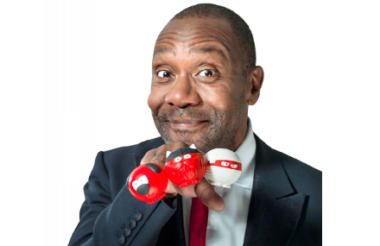Hiring African filmmakers to tell their continent's own stories will make Comic Relief’s appeal films more authentic, the charity said yesterday.
Comic Relief has increasingly been criticised over the depiction of Africans in its appeal films, and had previously committed to ending the “white saviour” narrative approach.
Yesterday it announced that for Red Nose Day 2021, all its new appeal films about Africa will be made by local filmmakers.
New guidelines for storytelling are being finalised, but Comic Relief has already said that no celebrities will be sent to Africa for the 2021 campaign. It has left the door open for celebrities to be involved future appeals, but only if “films and narratives continued to be fully led by local people”, the announcement said.
During an online discussion about the changes, Sir Lenny Henry, Comic Relief honorary life president and co-founder, said: “Over the last few years there has been an evolution process going on.”
He added that it was the right thing for Black Africans to be “making decisions about how they are perceived”, as well giving people a “platform to say ‘here is my representation of my community’”.
Partnerships with local media
Comic Relief will be also be working with media organisations across Africa on other projects, such as the Sema Stori Initiative. This has been delivered in partnership with Docubox, which is East Africa's only film funder and is owned and run by African filmmakers.
The project worked with 10 up-and-coming African filmmakers on a series of short films exploring social issues through the eyes of local communities. This included films on mental health, climate change and saving girls from child marriage.
Josh Kisamwa, filmmaker, said: “It is extremely crucial that we start telling the continent’s stories ourselves, because I feel it's more authentic and it is our reality.”
Eugene Muigai, filmmaker, added: “This opportunity makes people like us feel like we are finally being listened to. For so long we've seen people tell our stories, misinterpreting intentions, beliefs and the values we hold. It has led to a loss of culture and pride among our people.”
Laissa Malih, filmmaker, said: “Using local filmmakers gives a voice to certain issues that would otherwise be overlooked. Some local issues are not taken as seriously as others. And most local communities live in remote areas and are mostly forgotten when issues arise.”









